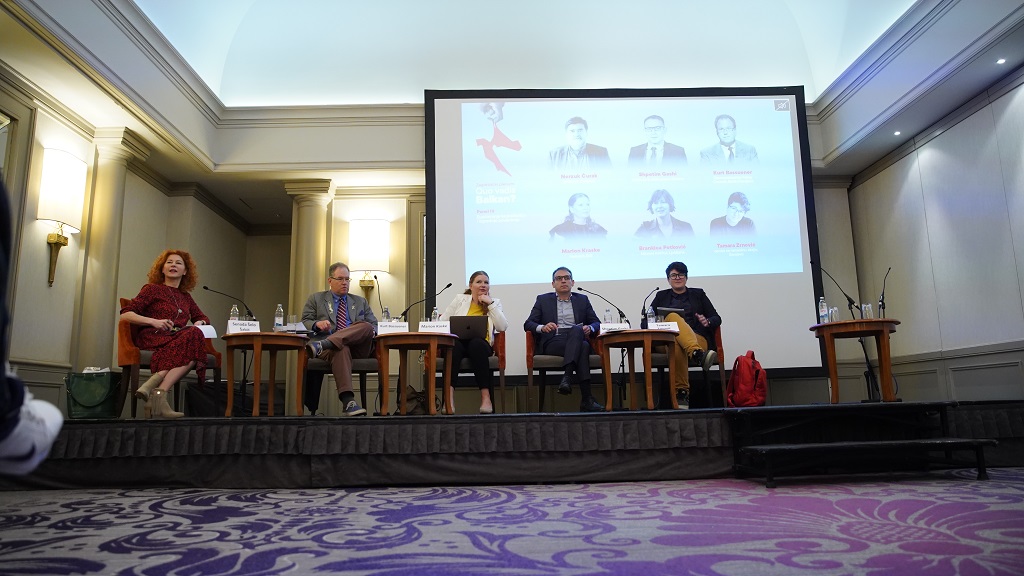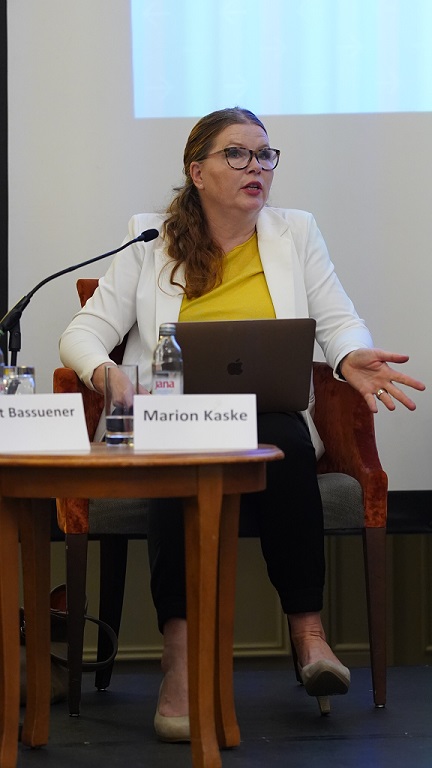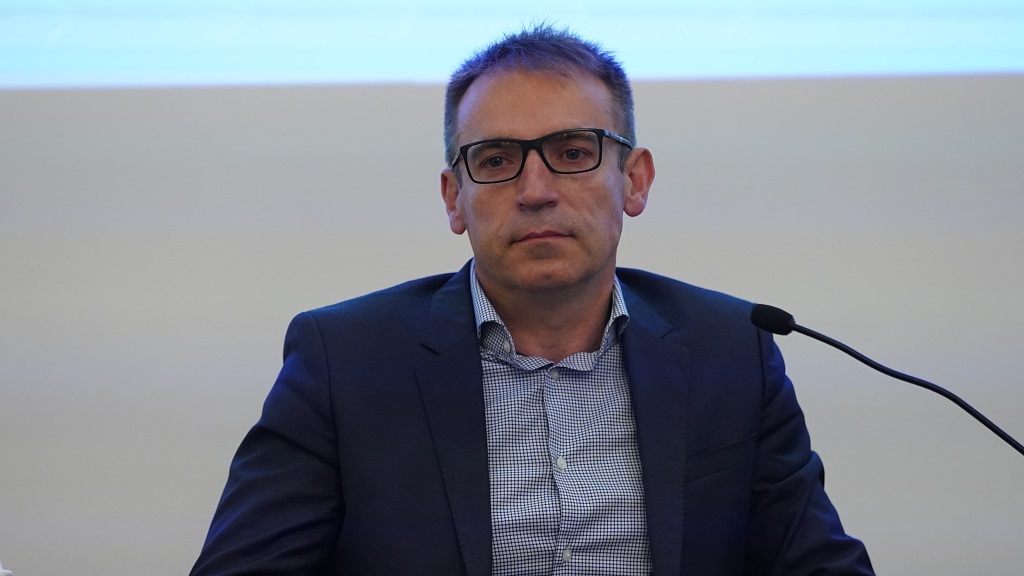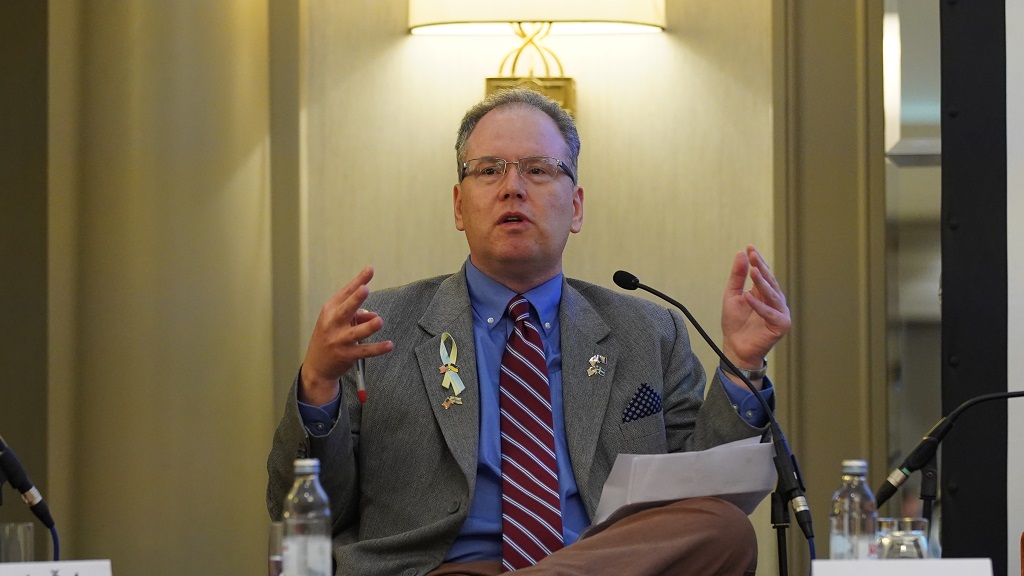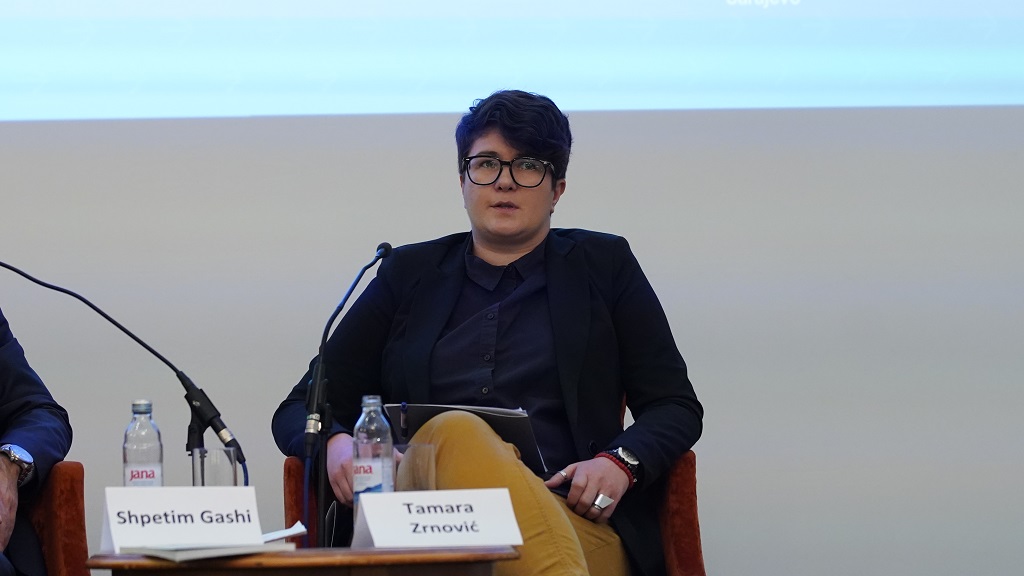The second day of the ZAGREB PLENUM – QUO VADIS, BALKANS? organized by the Regional Academy for Democratic Development (ADD) from Novi Sad, Documenta – Centre for Dealing with the Past from Zagreb and Centre for Civic Education (CCE) from Podgorica, with the support of the European Fund for the Balkans (EFB), started with the panel dedicated to dealing with the past and peace building in the region.
Marion Kaske, a political analyst from Germany, assessed that “in the region, history has become a dangerous weapon and a way to keep the political elite in power by manipulating and distorting facts, spreading fear and completing certain plans from the war period of the 1990s”. She considers that the political climate in the region is getting worse, that political reconciliation has not even begun, that trust is at a very low level, and that there is no readiness to convict crimes and criminals, while the verdicts of the International Criminal Tribunal are perceived as hostile acts. Speaking from Germany’s perspective, she recalled that the country was forced to go through a process of denazification, not only through the Nuremberg trials, but also through all other areas of social, public and political life, such as media freedom, education, while the region of Western Balkans lacks all of this. “The main reason why political elites do not want to work on reconciliation and confidence building is that they live from the past, from provoking conflicts, and that is why the current situation suits them perfectly”, she said. Kraske also said that it is necessary to recognize and support those who are ready for different types of politics, building better relations in the region, dealing with the past and reconciliation.
Shpetim Gashi, a human rights activist from Kosovo, said that we are facing problems that have existed for decades and that each succeeding generation has added and further complicated existing problems, while very few have actually tried to solve them. Speaking about the situation between Kosovo and Serbia, he said that it is first necessary to conclude some kind of peace agreement, and only then start the reconciliation process. Gashi warned that “as long as this problem remains open, people in border areas do not even have that kind of certainty to know in which country they will live in the near future”. He assessed that even symbolic actions, such as apologies, would contribute to building better relations, but that there is no political will for them. As an example, he cited the return of Dragica Gašić to Gjakova and the fact that no one spoke up at the time she was subjected to harassment and persecution, stood up for her and said she had the right to return, whether that’s institutions, politicians or the NGO sector.
Kurt Bassuener, from the Democratization Policy Council in Berlin, said that ten years ago the basic idea was that European integration would solve all the problems in the region. He warned that “the situation has greatly deteriorated compared to twenty years ago” and said that many things that were unthinkable then seem very possible today and that “this is a time when many unfinished agendas, unfulfilled dreams and unfulfilled plans are being revived”. Bassuener agrees with the assessments that the model of functioning of political elites is to keep people in fear and fuel conflicts. He considers that the role of the international community is sometimes confusing, and the West is inconsistent in its attitudes and demands, and that in recent years the prevailing approach is not to put too much pressure on the countries of the region so as not to create additional problems, be demotivated to cooperate with the West, turned to the other side and the like.
Tamara Zrnović, from the Centre for Nonviolent Action in Sarajevo, shared the experiences of her organization, which works with war veterans on all sides of the conflict and the difficult path of building trust between them. She cited examples of visits to commemorations and various places where war crimes were committed, and warned of how fragile the reconciliation process is and how much it rests on humanity, positive emotions, empathy and solidarity. Commenting on the Law on Prohibition of Genocide Denial, Zrnović said that many who criticize this Law have not even read what it says and that it should be viewed in a broader light – “as an attempt to sanction any glorification of crimes, criminals and humiliation of victims”. She stated that it took the Centre for Nonviolent Action ten years to enter Mostar with a group of war veterans, as well as that it took decades to build trust and that it is crucial not to give up in the face of numerous obstacles and condemnations.
Zagreb Plenum is the second in a series of events aimed at empowering progressive forces in the region through gatherings and talks on modalities to respond to growing right-wing extremism, the crisis of democracy, current challenges and obstacles to democratization in the region. In the next two days, the Zagreb Plenum will gather about 50 domestic, regional and international experts, officials, members of national parliaments and the European Parliament, diplomats, historians, journalists, publicists, representatives of the academic community and prominent activists.

